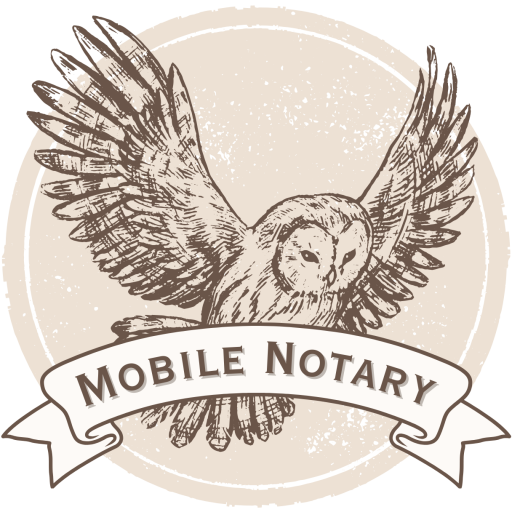These are the most asked questions in my experience as a Notary Public. Feel free to use this as a general reference prior to our notary appointment.
For other questions or clarifications regarding notarization, please reach out to me directly using the “Contact me” information at the bottom of the page.
What does it mean when a signature is notarized?
A signature is considered notarized when the notary has verified your identity, witnessed you sign the document, and applied their official seal to certify it.
What forms of payment can you accept?
I accept the following payment methods:
- Debit/Credit Cards — via Square tap-to-pay
- Cash — exact change is preferred
- Zelle or Venmo — available if needed
Do I need a notarization for each signature on a document?
No. If the same person signs a document multiple times as part of a single notarial act, it counts as one notarization. However, if multiple people are signing, each person’s signature(s) must be notarized separately.
Can you notarize loan documents?
Yes. As a commissioned California Notary Public, I am authorized to notarize loan documents. I am currently completing training to offer full Notary Signing Agent (NSA) services, which are commonly required by title and escrow companies for loan signings.
As with all notarizations, I do not provide legal or financial advice or explain loan terms, but I ensure documents are properly signed and notarized in compliance with California law.
Can you help me get my documents ready?
I can assist with handling your documents, but not completing them. California law does not allow Notaries to fill out or advise on document contents.
I do offer courier services such as printing, delivery, notarization, and returning or shipping documents, so the process is as smooth and convenient as possible.
Please ask prior to your appointment if you are interested in this service.
How much does notarization cost?
The California standard fee is $15 per notarized signature. For mobile appointments, a travel fee is added based on your location.
Other possible fees (case by case):
- Rush Fee — for appointments scheduled within 1 hour
- Courier/Shipping Fee
- Early Morning (before 8am) or After-Hours (after 6pm) Fee
All fees will be disclosed and agreed upon prior to notarization.
What do I need to bring to my appointment?
Please bring a valid government-issued photo ID that matches the name on your document. If witnesses are required, they must be present with you at the time of notarization.
Which forms of ID are accepted?
- California driver’s license or ID card
- U.S. passport
- Foreign passport (with a valid U.S. entry stamp)
- U.S. military ID card
- Driver’s license/ID card from another U.S. state
Can I use an expired driver’s license for notarization?
Yes. In California, IDs issued within the last 5 years are still acceptable. If longer, you must provide two credible witnesses instead.
What is a credible witness, and when would I need one?
A credible witness is someone who can swear to your identity if you don’t have valid photo ID.
Requirements:
- You do not have acceptable ID
- It is difficult or impossible for you to obtain one (elderly, ill, etc.)
Options:
- One credible witness who knows both you and the notary
- Two credible witnesses who know you (they don’t need to know the notary)
Each witness must present valid ID, take an oath/affirmation, and sign the notary’s journal.
When is payment required?
Payment is due at the time of notarization.
Can you notarize documents that don’t include notary wording?
Yes. If your document is missing the required wording, I can provide the correct notarial certificate during your appointment.
Do you offer overnight shipping?
Yes. Courier and overnight shipping can be arranged for an additional fee, if timing allows:
- One-Day Overnight shipping cutoff: 3pm (weekdays)
- Payment for shipping must be provided prior to mailing
- You will receive a receipt with tracking number
Can you notarize a document that has already been signed?
Yes — for acknowledgments. For jurats, the document must be signed in my presence.
What’s the difference between an acknowledgment and a jurat?
- Acknowledgment: Confirms your signature is genuine and voluntary.
- Jurat: You swear/affirm the document is true and sign in the notary’s presence.
Do you keep copies of notarized documents?
No. I never keep or store client documents. The only exception would be if I am temporarily in possession of documents for courier or shipping purposes. I only record legally required details in my notary journal.
What if my ID shows a different name than my document?
California notaries must rely on the name exactly as it appears on your ID. If your document shows a different name:
- Update the document to match your ID
- Provide ID that matches the document, or,
- Use credible witnesses (in certain cases)
Tip: Make sure your ID and documents match before the appointment.
Can you notarize birth, death, or marriage certificates?
No. Only the county or state can issue certified vital records. A notary can only notarize the request forms to obtain them.
Can you notarize documents in languages other than English?
Yes, with limitations. The notarial wording must be in English and I must be able to communicate directly with the signer. My only spoken language is English, but a translator or translation app may be used for additional support.
Do you offer online notarization?
No. Remote Online Notarization (RON) is not currently legal in California. All notarizations must be done in person. However, future legislation may allow online notarizations in the next few years.
